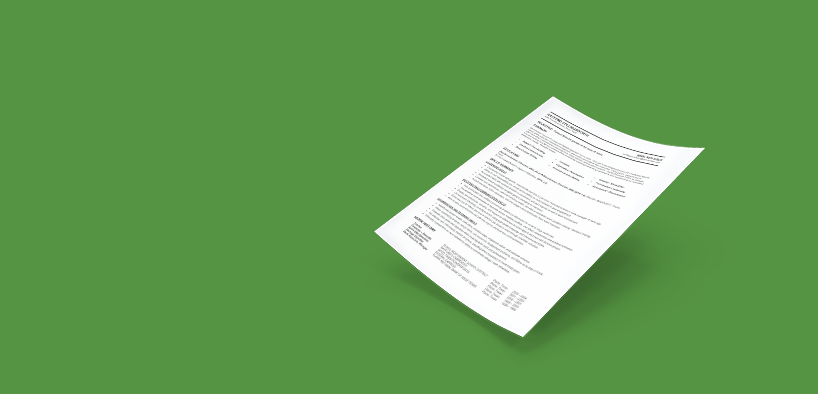What Is Biodata and How to Write It?

Biodata is an old-dated terminology for CV or resume. The full form of biodata is Bibliographical Data. This can refer to a special type of resume, which includes the most common information and personal data like date of birth, nationality, age, marital status, occupation, race, religious conviction, etc. Biodata also includes education and working experience listed in chronological order. This type of CV can also include information about applicant’s skills and hobbies. Biodata is often used in South Asian states when applying for grants or to government jobs. Sometimes, employers prefer only this type of resume. Biodata also refers to a validity assessment used by numerous employers for employees’ selection.
Benefits of Biodata
The modern companies often require this specific validity assessment to be used within an application process, thus when you deal with a biodata, first, check its benefits for applicants.
- Predicting turnover and job performance. Since a biodata remains a list of questions about the applicant’s personal experience, education, skills, it allows foretelling a job performance and on-the-job results. Often, particular questions included in a biodata give the clearest understanding of the applicants’ potential.
- Assuring safety. The answers gathered within testing allow predicting safety performance.
- This testing is shorter than personality tests, but it gives quite good results.
The criterion-associated validity assessment let employers check every applicant and predict his job performance and on-the-job results. It is quite an effective testing tool since it remains resistant to self-presentation prejudice and remains fair to minority groups.
Biodata vs Resume or CV
Biodata is an old-dated terminology for CV or resume, but it also differs a lot from the last mentioned formats. Biodata is a unique type of resume, which includes the most common information and data like date of birth, nationality, age, marital status, occupation, race, religious conviction, etc. It also includes education and working experience listed in chronological order, together with the applicant’s skills and hobbies. A resume is applicable to the precise job you are applying for, thus it in some way familiar to a biodata, but the last mentioned format provides more details.
The CV is a more detailed format than a resume, but it still does not include so many personal particulars like a biodata. CV mostly focuses on jobs and degrees obtained, professional skills and affiliations. It can include important personal achievements and even works published. A biodata focuses on personal essentials, thus it provided all the personal details of the applicants, even parents and siblings’ names, languages spoken, etc. Mostly, biodata is used as a replacement of resume in such South Asian countries like Pakistan, India, Sri Lanka, and Bangladesh.
Biodata Resume Format
This exceptional resume format is focused on personal particulars, education, working experience, and skills. If you need to perform a biodata to apply for a job, include the following elements:
- The employer needs to know your objectives and be aware of what the future achievements you want to reach.
- Personal particulars. It covers general information such as date of birth, nationality, age, marital status, occupation, race, religious conviction, etc.
- Educational Background. Biodata also includes education listed in chronological order.
- Include working experience recorded in chronological order, occupation history, obtained professional skills and achievements.
A biodata can often include such personal details of the applicant’s parents and siblings’ names, languages spoken, interests, hobbies, personal strengths, etc.
Biodata is a unique type of resume, which includes the most common personal information and details like date of birth, nationality, age, marital status, race, religious conviction, etc. A biodata also includes education and working experience listed in chronological order, together with applicant’s skills, desires, and hobbies. It differs a lot from the resume and CV formats. When a resume is relevant to the specific job applied, a biodata focuses more on personal details. Biodata is often used in such South Asian countries like Pakistan and India when applying for grants or to government jobs. This exceptional resume format is focused on personal particulars, education, working experience, and skills mostly. Furthermore, biodata also refers to a validity assessment used by numerous employers for employees’ selection.
Further reading

